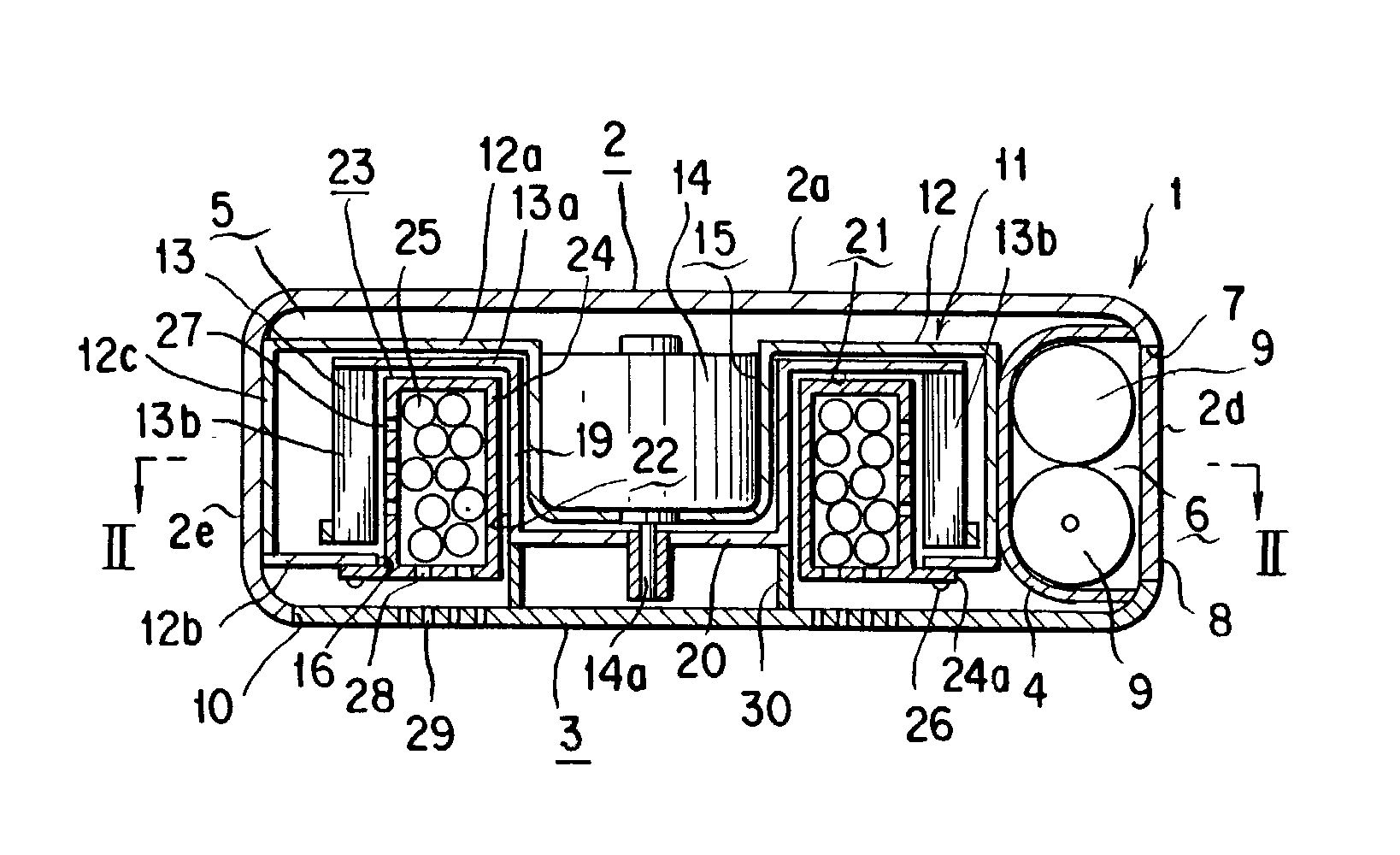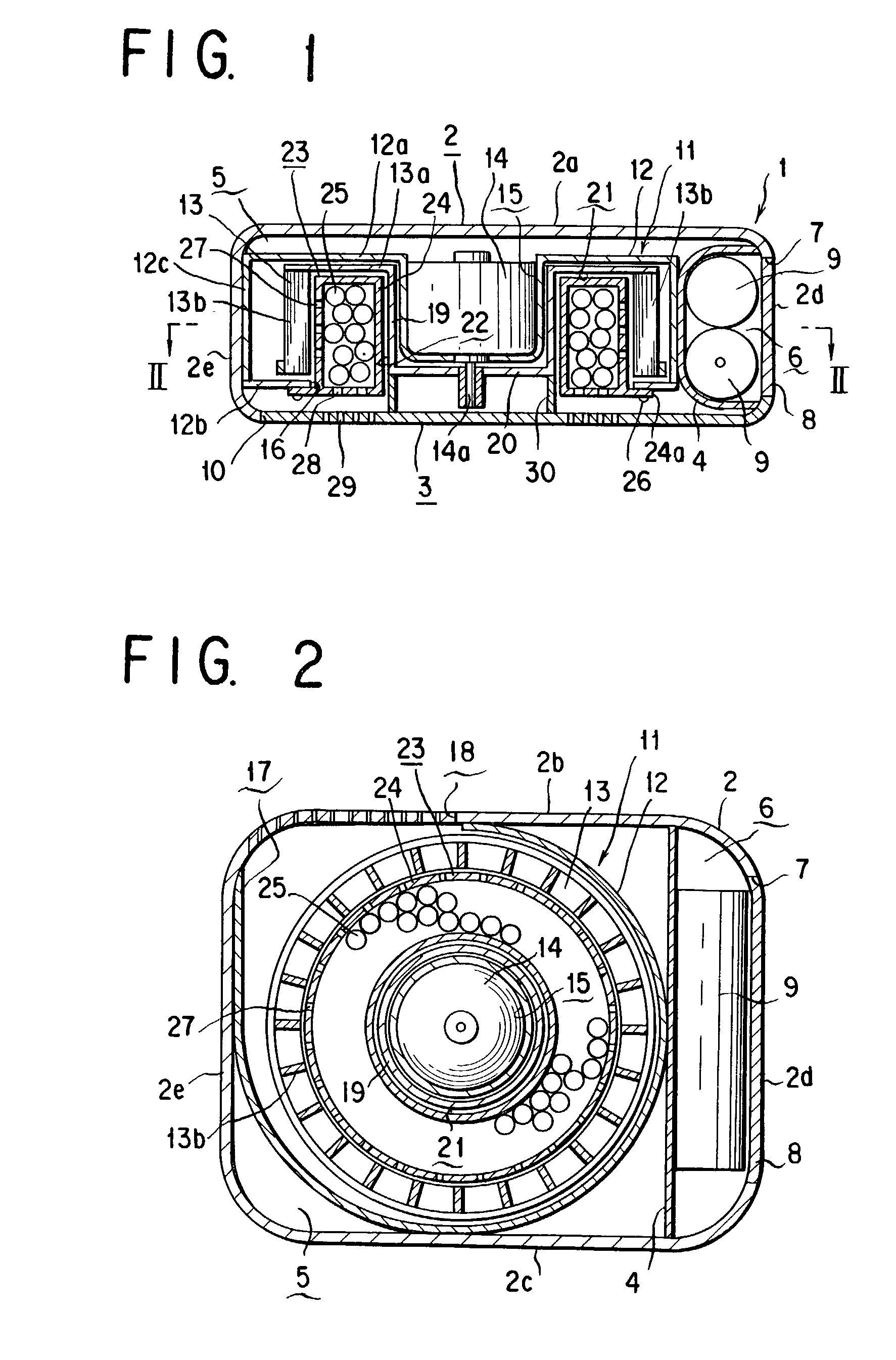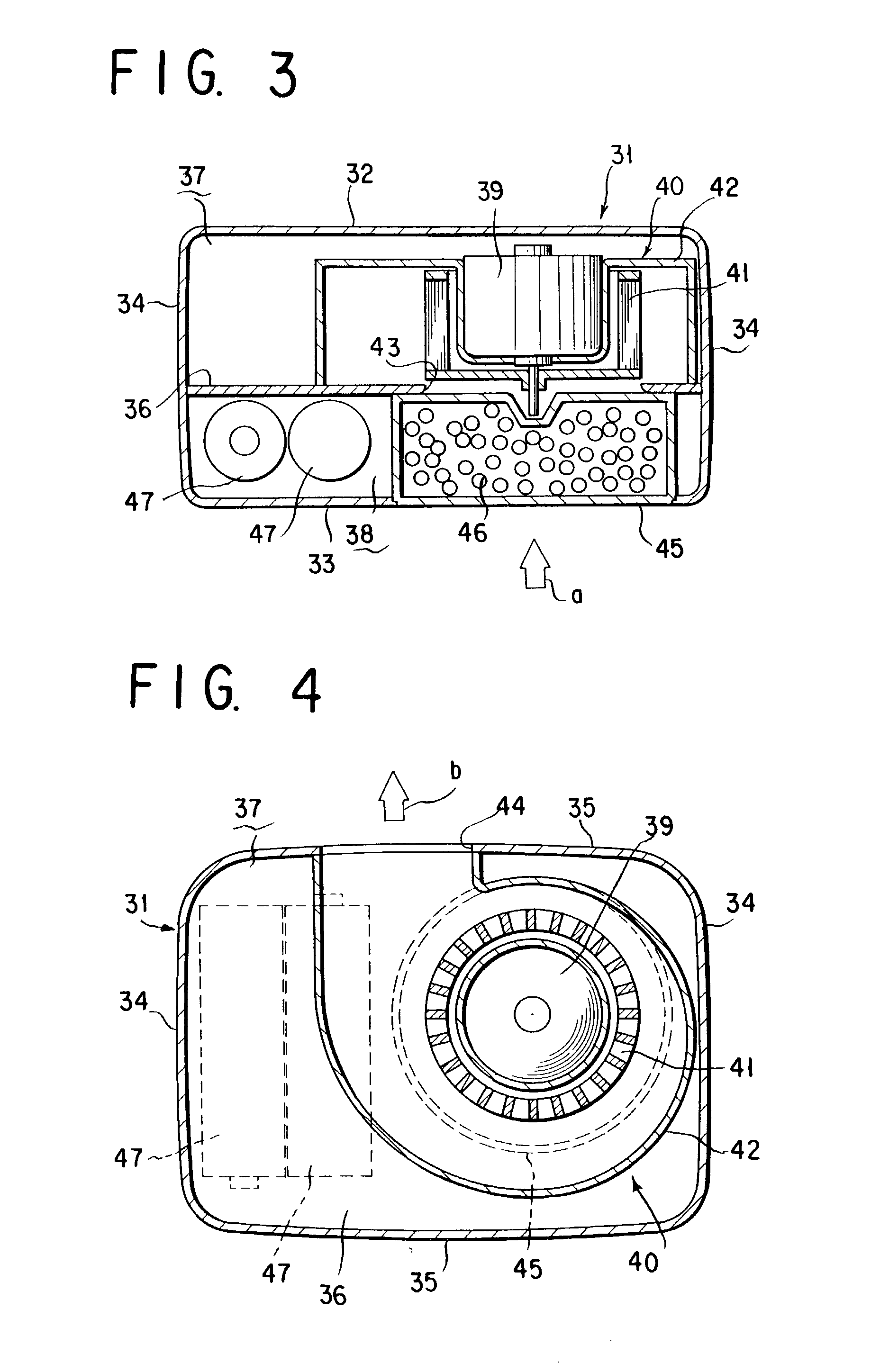Fan type chemicals diffusing device
a chemical and fan-type technology, applied in the direction of machines/engines, biocide, separation processes, etc., can solve the problems of complex structure, large size of the apparatus, complex structure of the apparatus, etc., to prevent any other damage, prevent bloodsucking, biting or eating behavior, and control growth
- Summary
- Abstract
- Description
- Claims
- Application Information
AI Technical Summary
Benefits of technology
Problems solved by technology
Method used
Image
Examples
example 1
[0414]On the side to the square blow outlet of 8 cm side of a DC brushless axial fan motor made by K. K. Siko Giken, there was placed a chemical containing cylindrical cartridge of 18 cm inner diameter and 10 cm high with its top bottom covered with nets. The cartridge accommodated therein a mass of 2 grams in weight of particles of 2 mm diameter constituted by foamed cellulose beads, impregnated with 300 milligrams of prallethrin. The apparatus in operation was cyclically turned on and off with an on time of 12 hours and an off time of 12 hours and with the cycle repeated 30 times. Changes with time in the amount of volatilization measured of the chemical and are plotted in the graph shown in FIG. 10. The knock-down potency against common house mosquitoes also measured is shown in Table 4. It should be noted here that the amount of volatilization is indicated by a value per unit time (hour) calculated from the chemical residue that was extracted from the chemical impregnated partic...
example 2
[0416]Using the same apparatus, a test was conducted in which the particulate mass was again a mass of 2 grams in weight of foamed cellulose beads of 2 mm diameter which in this example was impregnated with 1200 milligrams of allethrin. Under the same test conditions as in Example 1, changes in the volume of volatilization of the chemical and the knock-down potency for common house mosquitoes were measured. Results of the test are shown in FIG. 10 and Table 11.
example 3
[0417]Using the same apparatus, a test was conducted in which the particulate mass was a mass of 2 grams in weight of foamed cellulose beads of 4 mm diameter which in this example was impregnated with 1000 milligrams of terallethrin. Under the same test conditions as in Example 1, changes in the volume of volatilization of the chemical and the knock-down potency for common house mosquitoes were measured. Results of the test are shown in FIG. 10 and Table 11.
PUM
| Property | Measurement | Unit |
|---|---|---|
| specific gravity | aaaaa | aaaaa |
| specific gravity | aaaaa | aaaaa |
| current consumption | aaaaa | aaaaa |
Abstract
Description
Claims
Application Information
 Login to View More
Login to View More - R&D
- Intellectual Property
- Life Sciences
- Materials
- Tech Scout
- Unparalleled Data Quality
- Higher Quality Content
- 60% Fewer Hallucinations
Browse by: Latest US Patents, China's latest patents, Technical Efficacy Thesaurus, Application Domain, Technology Topic, Popular Technical Reports.
© 2025 PatSnap. All rights reserved.Legal|Privacy policy|Modern Slavery Act Transparency Statement|Sitemap|About US| Contact US: help@patsnap.com



